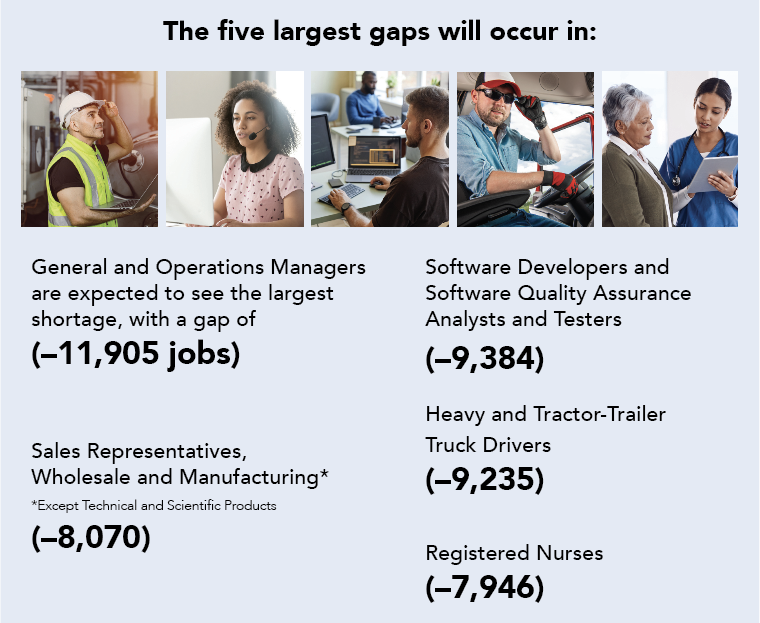
The Granite State is facing a workforce gap of more than 190,000 jobs in the next decade, according to a new report from NH Department of Business and Economic Affairs.
“New Hampshire’s 80 top occupations are projected to have nearly 197,000 job openings from 2022 to 2032, of which only 6,100 will be filled by labor force growth, leaving a gap of nearly 191,000,” according to the “State of NH Workforce Assessment.”
“A total of 34 occupations were identified with significant gaps. Management occupations accounted for the largest portion (14%) of the projected labor force gap. Other large occupational group gaps include Business and Financial Operations (12% of the gap) and Sales and Related Occupations (11%),” the report states.
The report outlines two paths to addressing the shortage—attracting and retaining commuters and attracting workers form outside New England.
Regarding retaining commuters, the report states, “Over 90% of workers in in-demand occupations commute out of state for work. Factors like taxes, cost of living, and wage rates all play a factor in determining where individuals decide to work – which draws attention to the need for public sector economic development officials and private sectors businesses to team up on addressing or making the case for these
individual factors.”
According to BEA Commissioner Taylor Caswell, “The results of this analysis will help employers, regional support organizations and the state remain in position to retain and grow New Hampshire’s competitive advantages by meeting the workforce needs of our economy.”
The new analysis provides specific data on what the workforce needs are across the state’s top five growth sectors and what specific positions represent the highest need across those sectors. Visit nheconomy.com to read the full report.
BEA will also develop a slate of marketing assets, including images, videos and digital assets, for use by New Hampshire employers and economic development partners. These will reflect the findings in the analysis and include Metropolitan Statistical Areas (MSAs) that represent geographic areas for targeted recruitment marketing.

 Current Issue - July 2024
Current Issue - July 2024